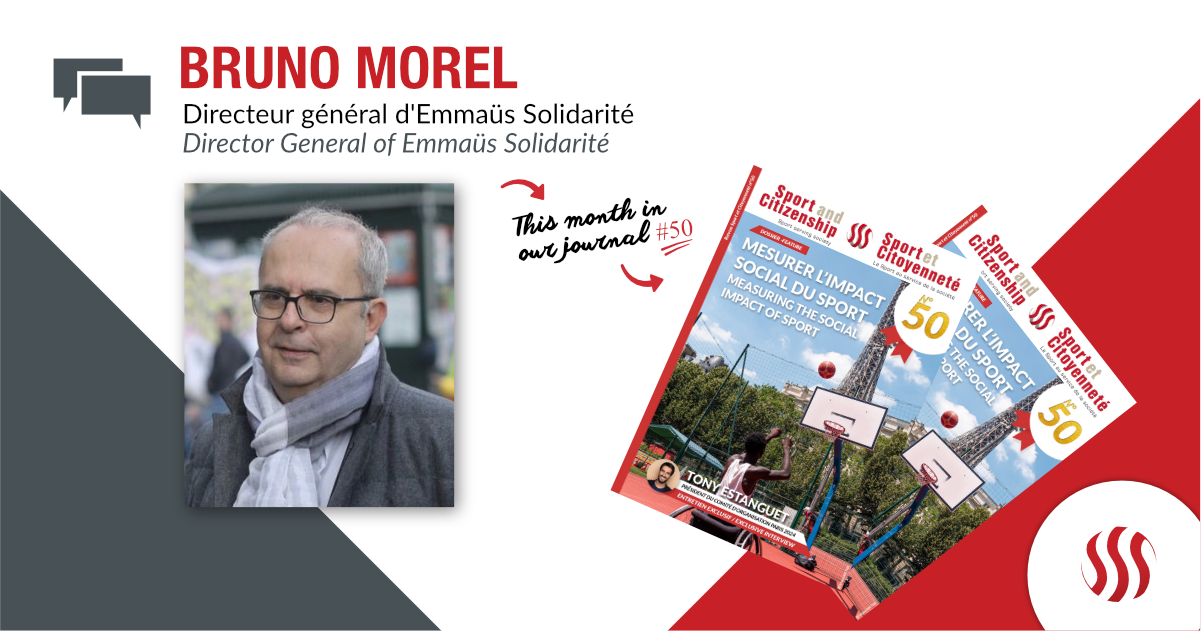
“Documenting the impact of sport for developing life skills”
“Documenting the impact of sport for developing life skills”
Using sport and physical activity to re-engage people in difficulty: that is Emmaüs Solidarité’s Vision. It is already being implemented in several projects, including one supported by the French National Sport Agency (ANS). An interview with Bruno Morel, Director General of the organisation created by Abbé Pierre.
 Bruno MOREL
Bruno MOREL
Director General of the organisation Emmaüs Solidarité
You work with some of the most vulnerable members of society. How do you use sport and physical activity (SPA) on a daily basis?
BM: In our mission to support people, Emmaüs Solidarité sees SPA as a lever for integration and inclusion in its own right. This means removing the various obstacles to doing sport faced by people who have nothing left and who therefore often neglect their physical health. Firstly, we organise activities that don’t look like sport, but which will get people moving and form a bond so that they want to come back. Then other activities are suggested, in line with feedback from the people and working with the teams. We will use anything to give people (back) confidence in themselves and their abilities. We believe that by remobilising bodies, we can remobilise minds.
You are running a project in this area with Viacti and our Think Tank, and with the support of the French National Sport Agency. You have decided to measure the impact of this project. Why is this beneficial?
BM: Sport in general is “good for you”, and it is particularly effective and positive for the health of the people we are working with, whose physical state is weakened by time spent on the street. We have precise indicators, and the impact is so well-known that sport is now an element in public health. However, when it comes to developing life skills, we still need to document the mechanics and the effects, by identifying the factors for success with a method which can be replicated. We will then be able to tell social work teams, public bodies and the authorities that physical activity is a powerful force, and the part it plays in remobilising persons in difficulty.
How can interaction between sports clubs and social actors be reinforced?
BM: The social sector and the sport sector do not know much about each other and are not used to working together, although they share common values. Emmaüs Solidarité is now setting up sport workshops, for their health value first of all, then as part of a person’s overall development path. It is sometimes difficult to go further, to do sport in a club when you don’t know the rules and when you think that sport is for other people, when you have never been to a stadium and you can’t afford the membership fees or the equipment. And yet this is a vital part of being a citizen and a member of a community. In the context of a partnership-based approach, the first step is to bring together these two sectors and share our ethos. This will give rise to projects for helping clubs to welcome vulnerable members of society, as well as funding to remove obstacles and make it easier to participate.
